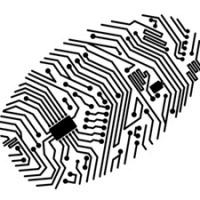Tag Archives: Best Practices
Global reach and dynamic page weight – is there a correlation?
April 5, 2013, by ronan
Many reports on web page sizes issued in recent years point to the same conclusion: the web has a weight problem. The web seems to be gaining weight each year despite the fact that study after study has shown a strongly negative reaction from users to heavy web pages and resulting loading times... Read More
Why Responsive Web Design is not always the best option for a mobile SEO strategy
March 21, 2013, by Staff
There are a lot of misconceptions about what Google is saying about mobile SEO. First and foremost, Google doesn't mandate the use of Responsive Web Design (RWD) as best practice for SEO. Google [url=https://developers.google.com/webmasters/smartphone-sites/details]expressly says[/url] [i]"Google does not favor any particular URL format as long as they are all accessible to both Googlebot and Googlebot-Mobile”[/i] the bots Google uses to crawl desktop and Smartphone specific content. And it’s worth noting here that Google is crawling desktop and mobile content separately... Read More
Performance is money, part 1: the end-user’s wallet
March 12, 2013, by ronan
Most web developers are familiar with the maxim that light is good: the idea that page performance matters to the end user experience is a truism at this point, backed up by a tremendous amount of real-world evidence, summarised quite nicely at [url=http://www.websiteoptimization.com/speed/tweak/psychology-web-performance/]websiteoptimization.com[/url]... Read More
Using HTML5 application cache in mobile Web apps
October 11, 2012, by AndreaMoretti
One of the most interesting features of HTML5 is support for application cache. Every Web browser has a built-in cache that stores recently visited Web pages. This means the same pages and assets will load faster the next time the browser returns. At every subsequent call, the browser checks the timestamp to determine whether to reload the assets from the server or serve the cached versions... Read More
Sense and sensor-bility: access mobile device sensors with JavaScript
Just as we humans call upon our senses to provide us with data about our environment, so smartphones and tablet devices use their own digital senses – touchscreen, geolocation, orientation, direction and motion – to provide interaction and to tailor applications and games to the user and their real-world surroundings... Read More











